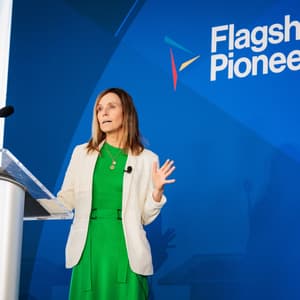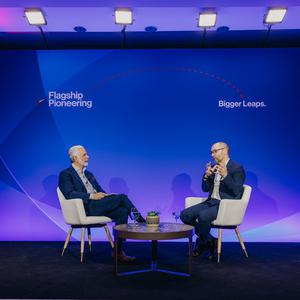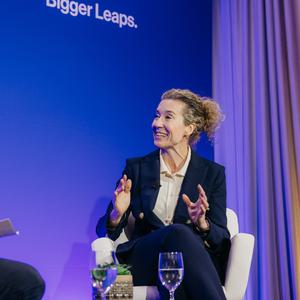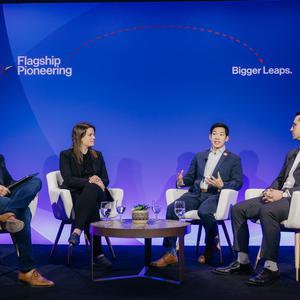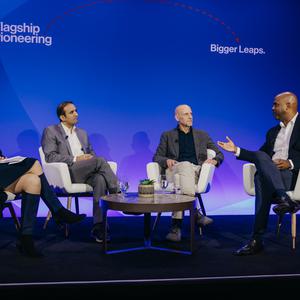Kala Subramanian, Flagship Pioneering Operating Partner and President of ProFound Therapeutics and FL83
On her typical workday… First thing in the morning I head to the gym to exercise, which is important for my sense of calm and mental clarity. After that, it is off to the races, working on two Flagship Pioneering NewCos together with the teams, managing the execution against the strategic priorities, interviewing candidates to attract talent and the right leadership, and establishing capabilities to unlock platform value. I’m in the office every day, whether at the Southline Boston campus, where the companies are located, or at the Flagship HQ in Cambridge.
On building pioneering companies… The companies I’m working on are early-stage platform companies and, in true Flagship fashion, are pushing boundaries that others might shy away from. Furthering their development requires balancing science, operations, and resources, all while keeping the overall strategy in sight. That last piece, the science, is its own balancing act. We need to think broadly as to the potential of the platform to maximize its value, while executing to deliver in the near-term. I’m always working to keep these pillars in harmony because the payoff could be lifechanging. Biotech has become the innovation engine for big pharma — we are the trailblazers that are going to find cures for patients.
On innovating… We face a lot of uncertainty while testing, validating, and iterating on potential scientific innovations. In these situations, it is important to lay out the various scenarios and options for yourself — not being limited by what has been done before. Then, you need to be open to feedback, which will help to remove any blinders and ensure you haven’t overlooked an option or made a flawed assumption. The exciting part of working on an agile early-stage company is that you can take a parallel approach to unlock science, which must be paired with a willingness to iterate and pivot as we generate data and learn.
On getting where she is… Look for opportunities to talk to and learn from many different people, which includes people from all levels, and, on top of that, be open to their feedback. You will start to get a sense of your strengths, as well as where you need to continue to develop. That growth comes from developing skills — the building blocks of your career. Set the bar high for what you want to achieve, knowing that while you might not get there, you will likely achieve more than if you had set a modest goal. And, when you achieve a goal, know that isn’t a ceiling — we all need to continue to evolve and grow throughout every stage of our lives.


